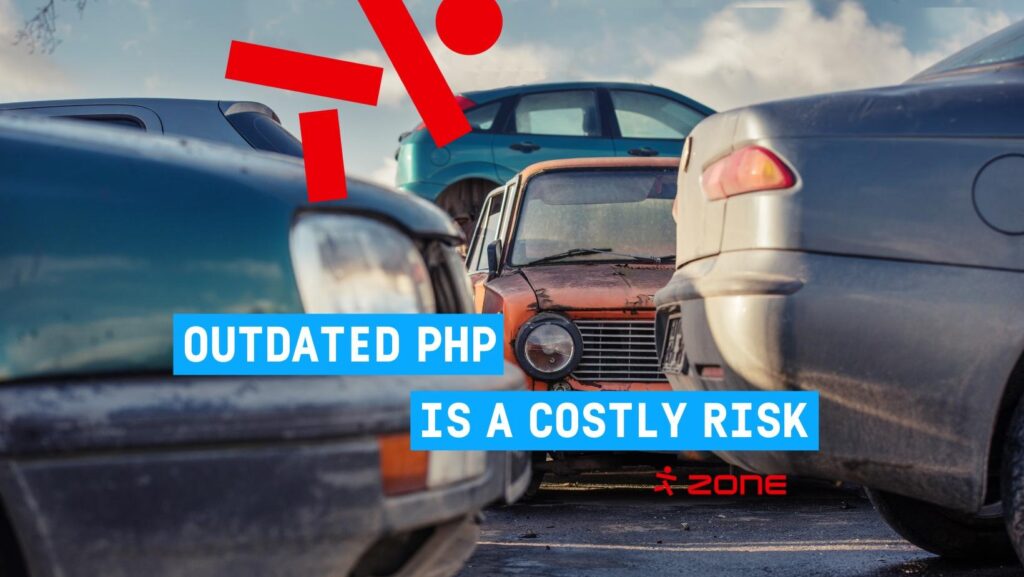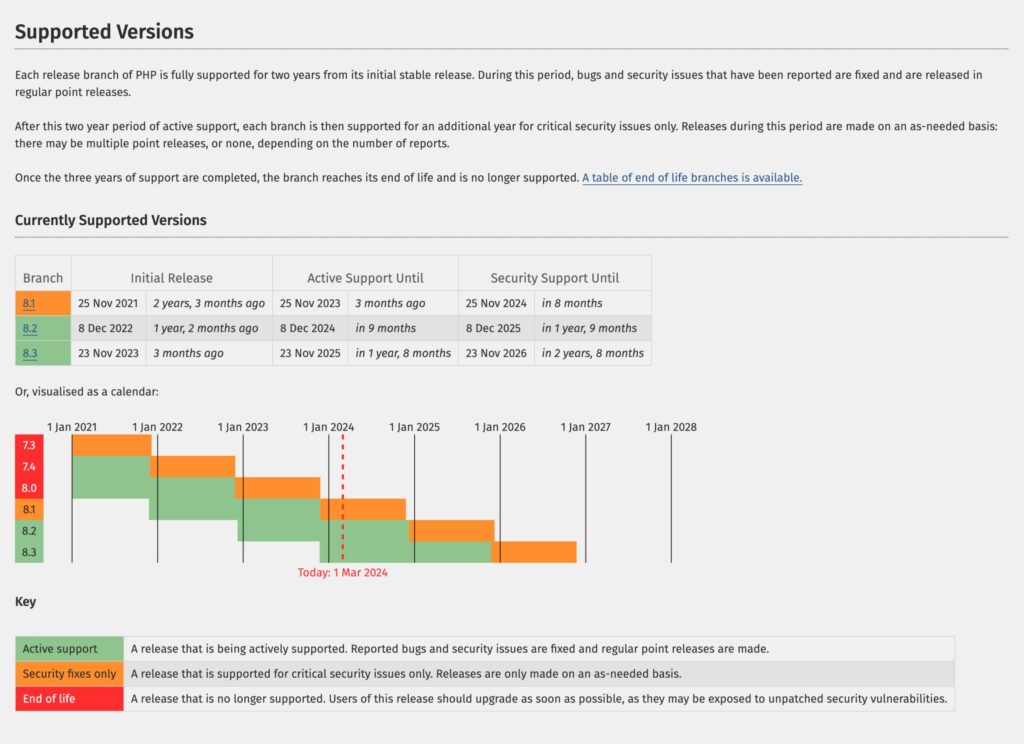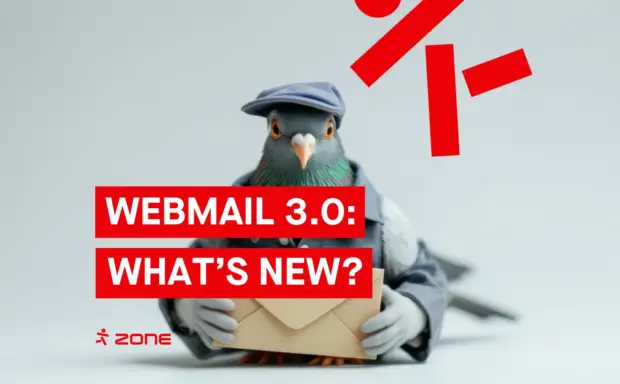Outdated PHP is outdated PHP
This blog post is more than 23 months old and may be out of date.
“There is no reason for any individual to have a computer in their home.”
– Digital Equipment Corp. founder Ken Olsen in 1977
“640 kB ought to be enough for anybody.”
– Microsoft founder Bill Gates in 1981
The Internet loves these quotes, even though Ken Olsen’s sentence was taken out of context and Bill Gates never said anything like that. These are just good quotes to illustrate that times change. We may not want to admit it to ourselves, but in the winds of change that blow endlessly on the Internet, outdated PHP versions have inevitably fallen behind with time and development.

The Internet was very different 25 years ago when Rasmus Lerdorf released the first modern PHP version 3.0. The requirements for web pages were still modest and both web development tools and operating systems had relatively small capabilities. It was completely normal for the website to be linked to the version of the software being used and that’s how it stayed on the Internet. Since the software was mostly simple, updating it was neither necessary nor often even possible.
In 2024, the software running the web has to be much more capable, but that capability comes with its downsides – it’s also much more complex, with more dependencies and a much shorter life cycle.
The latest PHP is more demanding than ever
Today’s PHP has to handle all the technologies used on the modern web, and there are significantly more of them than 25 years ago. Developing all this support yourself is neither reasonable nor probably possible, and PHP uses the help of many different pieces of software for this. The PHP installed on the Zone platform and its set of modules requires nearly a hundred libraries to work. Different image formats, text encodings, cryptographic and compression algorithms, network protocols, authentication methods and databases – all of this is supported by software developed by third parties.
These things don’t stand still but are also in constant development. The more dependencies a piece of software has, the more it is tied to a specific point in time and the more difficult it is to support it over a longer period of time. In every software version, there comes a point where the developers say that versions older than X no longer get our attention and security updates and it’s time to move on to a newer version. If the software you’re developing is PHP with triple-digit dependencies, this happens to those dependencies all the time. You give the world the brand new PHP version 8.3 and after a few years you are in a situation where you have to make important changes to it because some graphics or cryptography library has stopped supporting the required version and the continued use of the older version is no longer acceptable for some reason.
This is the main reason why the PHP project has decided that each version will have a three-year lifespan – two years of active support and a year of security fixes. Active support for PHP 8.3, introduced to the world a few months ago, will last until November 2025 and support for security updates until November 2026. PHP developers don’t want to do more than two years of support work. This doesn’t mean that longer-term support isn’t possible at all, but it has to be done by others. The lifespan of Linux distributions is typically a bit longer than three years and distributions are forced to support PHP versions that are no longer supported by the PHP project itself. There are those who do it longer, but longer support usually costs money (e.g. Ubuntu Expanded Security Maintenance).

Using old PHP versions means a lot of work for everyone
For Zone, supporting all older PHP versions (currently there are seven) is a job we have to do ourselves and it’s one of the main reasons why we use our Linux platform ZoneOS. Every now and then, we have to make sure that all PHP versions still supported by Zone work on a newer platform and get important security fixes. Fixes are released every month in newer PHP versions that potentially need to be integrated into older PHP versions. Every newer version of a library can break the functionality of older PHPs; problems like these need to be discovered and fixed. The older the PHP version, the more complicated, time consuming and resource consuming this work is.
But no matter what, there will come a point when we are forced to say: “That’s it. From now on, PHP versions older than X.Y cannot be used on the Zone platform.” That moment can come relatively unexpectedly, be related to security, compatibility, technical details, or be simply because the amount of work required to support the old version has grown unreasonably large.
In fact, you often don’t realise that switching to newer software versions is not as big a problem as it used to be – although development is faster, it also happens in much smaller leaps. For web developers, this means that the days when changing the PHP version of a website was reason enough to rewrite the entire page from scratch are gone. Even with a unique tailor-made solution, migrating the web to a new version of PHP is not a nuisance, especially if you do it regularly and don’t let problems pile up. With tools created by Zone, testing newer PHP versions is also effortless.
Times changing doesn’t mean they are necessarily better or worse – they are just different, and you have to adapt. Yes, it is more difficult to forget your web software inside the Internet for a long period of time, but paying attention to minor updates more often will make your web’s lifespan significantly longer and changes less painful.
In addition, it is definitely worth taking a look at the comprehensive guide in our support environment, in which you will find out how to see and update outdated PHP versions.
Post navigation
Popular posts

Blocklist: why does the computer say no?

Protect your brand online: why one domain may not be enough

.NO domain now at Zone – is your business ready for the Norwegian market?
